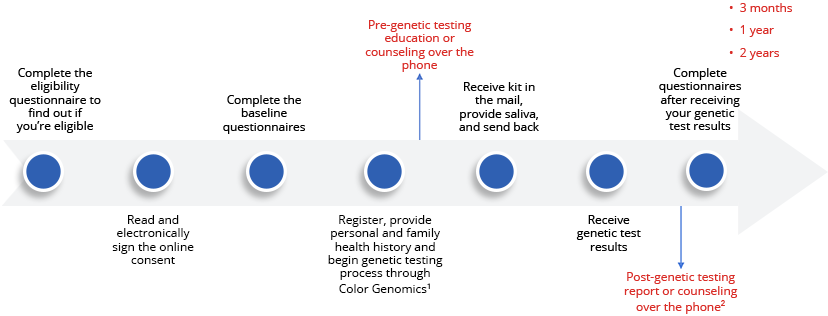The University of Texas MD Anderson Cancer Center is currently seeking women to enroll in the MAGENTA study to evaluate the first at-home test to assess the risk of ovarian cancer.
The MAGENTA study aims to improve the availability of genetic tests for people at risk of hereditary cancers, through the use of an online genetic testing service. The goal is to make genetic testing accessible to everyone, leaving out the need to travel to a healthcare provider and saving more lives in the process.
“There are a lot of barriers to genetic testing and MAGENTA is designed to make it much easier, so women don’t have to take time off from work, they don’t have to get child care, they can do it in their own home,” Kathleen Gavin, executive director of Minnesota Ovarian Cancer Alliance, a partner in the MAGENTA study, told CBS Minnesota News. “We’re hoping to identify more people with the information so they can take steps to reduce their risk.”
MD Anderson researchers are now seeking participants to undergo genetic testing for 19 genes associated with inherited cancer risk, including ATM, BARD1, BRCA1, BRCA2, BRIP1, CDH1, CHEK2, EPCAM, MSH2, MSH6, MLH1, NBN, PALB2, PMS2, PTEN, RAD51C, RAD51D, TP53, and STK11.
To qualify for the study, participants must be 30 or older, have a valid mailing address in the U.S., have had breast cancer or a family member who had either breast or ovarian cancer, have at least one ovary, and have never had genetic testing or counseling for cancer risk in the past.
After filling out personal and family health history information, those who are eligible will receive a saliva test kit at their homes for the genetic testing, and complete a series of online questionnaires regarding their experience. While participation in the study does not require travel, access to the internet and a phone are necessary.
Some participants will undergo genetic counseling over the phone and some won’t. The timeline for participation in the study is as follows:

The MAGENTA study is a collaborative research effort between Stand Up to Cancer, the Ovarian Cancer Research Fund Alliance, the Ovarian Cancer National Alliance, and the National Ovarian Cancer Coalition, along with scientific partner the American Association for Cancer Research.
The collaboration was established at the AACR annual meeting in 2015, when a Dream Team was formed to allocate $6 million over three years to a project titled “DNA Repair Therapies for Ovarian Cancer.”
The Dream Team’s commitment was to focus on prevention and early detection of ovarian cancer, which tends to be diagnosed at a late stage of the disease. One of the results was the MAGENTA study.
More on eligibility criteria is available here. To see if you qualify for the MAGENTA trial, click here.

